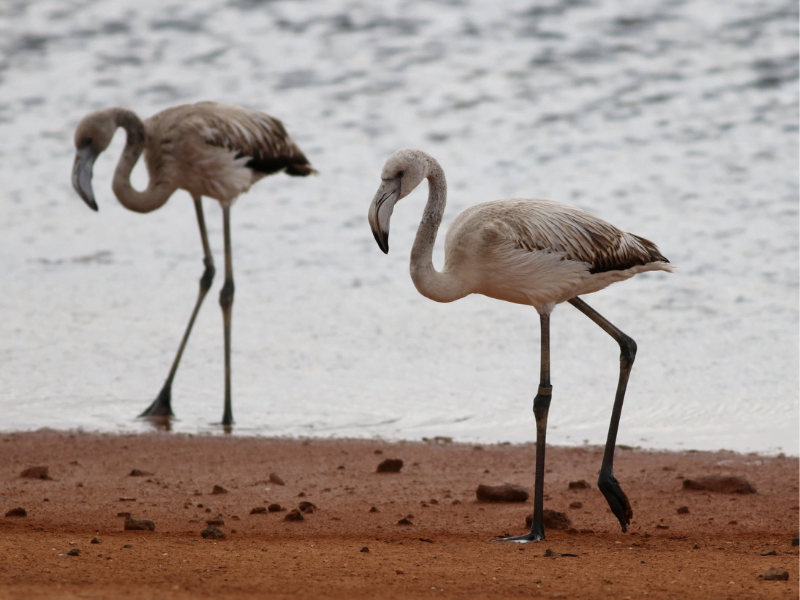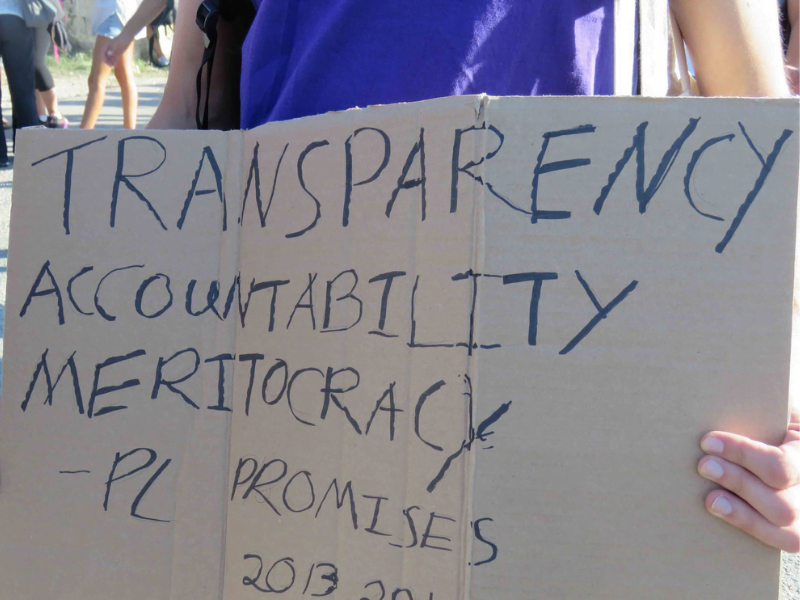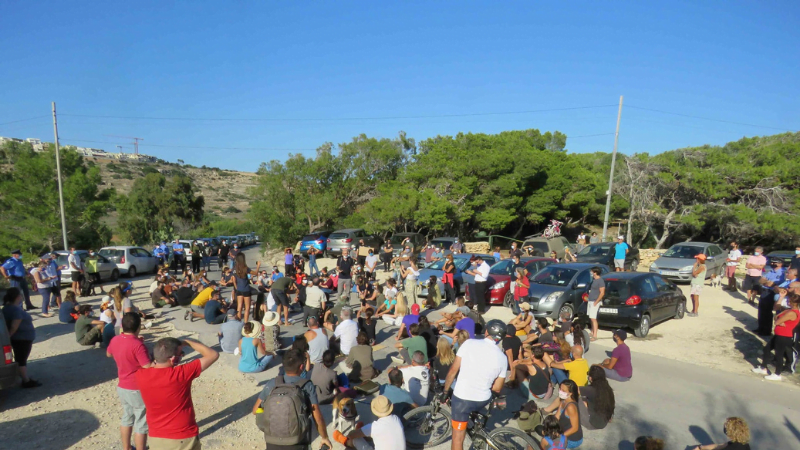With the signing of the agreement between the Lands Authority and Federazzjoni Kaċċaturi Nassaba Konservazzjonisti (FKNK), without any prior public consultation and away from any media scrutiny, the government was able to pull quite a rabbit out of the hat.
With the stroke of a pen, they confirmed that a 35-year-old agreement which the court had cast into doubt in 2017 was now made legal. The press was not invited for the signing and no questions could be asked.
To counter the backlash that followed, the Department of Information issued a statement on 10 October. The press release attempts, in nine points, to justify and “set the record straight” following the “inaccuracies” reported in the media.
Yet instead of quelling any lingering uncertainties, the points do little more than echo FKNK’s viewpoints, which is why it is worth rereading the more salient of these statements and separate fact from fiction.
Here they are, in no particular order:
‘This agreement is no different to other agreements with other NGOs who administer public zones’
Highly misleading: This statement implies that FKNK is placed on par with other environmental NGOs such as Birdlife or Nature Trust whose primary aim is conservation. These two NGOs lobby for the legal protection for plants and species and are given areas to manage in order to fulfil these aims.
These aims are very different to those of hunters and trappers. FKNK’s website and Facebook page state clearly that its primary aim is: “To preserve the Maltese socio-cultural passions of migratory huntable wild birds hunting and live-capturing with selective nets”.
Slapping the word “conservation” to the end of the federation’s name hasn’t changed its principal purpose.
Claiming that you look after rubble walls in the Miżieb and l-Aħrax, is by all means a worthy act but that is not conservation, especially if this takes place in tandem with building unauthorised hunting hides on public land.
Breeding turtle doves to replace those hunted, so that they may eventually be hunted again, is perhaps one of the most warped interpretations of the term conservation. It is just blood sport.
The number of hunting illegalities that are recorded each year coupled with lax enforcement do little to inspire trust and endear the public to the hunters’ cause, and giving the administration of such a large swathe of precious public land, approximately five times the size of Buskett, to such a small group of individuals is not going to wash this time.
There is no conservation/caretaking spin that can right this injustice.

Three juvenile Greater Flamingos disappeared from the nature reserve managed by Birdlife following a break-in, a repeated occurrence when these birds prized by hunters land at the reserve.
‘The l-Aħrax and Miżieb reserves have been administered by the FKNK, under different administrations, for the past 34 years. The agreement signed formalised and regularised what has been in practice for decades’
Partially true: This is perhaps the most contentious part of the agreement. What the DOI statement fails to mention is how the FKNK came to administer such large swathes of public land in the first place.
Just before the 1986 elections, former Prime Minister Karmenu Mifsud Bonnici wrote a letter to FKNK promising the use of the land, and this was later endorsed by then Deputy Prime Minister Guido de Marco.
Mifsud Bonnici insisted that Miżieb, just like the area at l-Aħrax tal-Mellieħa, was not being given on emphyteusis (ground rent), nor was it a land transfer agreement, but that it was being given to the hunting federation to use for the purpose of hunting in exchange for the areas’ upkeep.
The environmental NGO Birdlife Malta contested the use of these tracts of land for years, insisting that the authorities never publicly produced a copy of Mifsud Bonnici’s letter to the FKNK, and arguing that the law does not permit any prime minister to treat public land as if it were his own to hand it to others as a political favour.
The NGO further stated that, “The management of public land by NGOs is only permitted following a legal agreement that imposes a strict regulatory framework for site management”.
Yet, for years, Nationalist administrations refused to tackle this elusive agreement, for fear of losing those precious votes.
The closest thing we have to questioning the validity of Mifsud Bonnici’s letter is the judgment handed down by Magistrate Charmaine Galea who acquitted Birdlife Malta volunteer Nimrod Mifsud of criminal charges of trespassing in Miżieb, following a report by the FKNK.
Mifsud was accompanying BBC naturalist Chris Packham to Miżieb for part of his documentary on spring hunting in Malta. Magistrate Galea dismissed FKNK’s claims to the land given that they had failed to present a detailed site highlighting the areas which, according to this agreement, are restricted to the use of hunters during the hunting season and therefore found no conclusive evidence that Mifsud was in the area agreed upon in Mifsud Bonnici’s 1986 letter.
That’s not all. Among the points listed in the formal agreement, many of which use language that is vague enough to be interpreted at will, is point 19.3 which states that this new agreement supersedes all prior agreements with the exception of the agreement reached in 1986.
In short, it confirms that Mifsud Bonnici’s 1986 agreement was in full force and, presumably, will even prevail once the three-year term is up.
Unfortunately, that’s what you get for the years wasted tiptoeing around the hunters’ lobby and the short-term courting of votes; an absurd agreement with far-reaching consequences for the rest of the Maltese population.
‘The agreement signed was published in full, so suggestions of secrecy are totally untrue’
False: This statement is a play on words. The secrecy (and subterfuge) which is being denounced does not refer to the publication or the content of the agreement. What it does refer to is the date of the signing being brought forward from 11 October to 9 October without notifying any interested parties or the press.
It also refers to how, in the months prior to the signing, information was withheld from local councils and environmental NGOs, all of which had expressed concerns about the proposed agreement when it had been revived by Prime Minister Robert Abela, back in May.
If this agreement was so beneficial to the Maltese public, why present us with a fait accompli?
Could it be that the public’s mood has soured to the point that the ministers involved would rather deal with the backlash of a pre-signed document than put up with any persistent opposition that may delay any potential electoral or pre-electoral promises?

A protester holds up a sign with the Labour Party’s slogan for the election that swept it to power as citizens gathered outside Mizieb.
‘The general public will have free access to these reserves all year round—the same access they have had for the past 34 years’
False: In the words of Mifsud Bonnici himself to The Malta Independent: “Naturally, it would be foolish for anyone to go to these reserved areas during the hunting season, because they risk getting hit by lead from shots fired by hunters […]”.
So, no, in reality, the public cannot access the reserves all the year round. The public has never had unrestricted access to these areas.
According to points 6.6 and 6.7 of the new agreement, the sites will be accessible to the public outside of hunting season hours, the timings of which should be clearly indicated at the sites.
The hunting seasons last two weeks in spring and five months in autumn (from September till January) and “any other date that may be approved by the concerned authorities […]”.
That’s plenty of wiggle room, especially when one considers that in 2019 amendments to the Environment Protection Act’s Protection of Wild Rabbit Regulations relaxed the provision whereby rabbit hunting licence owners could only hunt rabbits with the permission of landowners.
The amendment now permits rabbit hunting in all areas where bird hunting is allowed. The rabbit hunting season is from 1 June till the 31 December.
When all the months when hunting is permitted are taken together, what remains is only a few weeks in the year in which hunting does not occur (if rules are observed) and in which the public may access these areas without “risking getting hit by lead from shots fired by hunters,” as Mifsud Bonnici put it.
Then, there’s the issue of having to walk around lead shot cartridges spread across the area left behind by trigger-happy hunters.
A report by Birdlife Malta and CABS published in 2009 also revealed the discovery of over 200 dead protected birds buried in Miżieb. FKNK’s ‘conservationists’ seem to have missed them.
It is not hard to envisage what the likely consequences of the government’s agreement for l-Aħrax and Miżieb areas would be. Public land is for the public and agreements should reflect the public’s interests and not the other way around.












